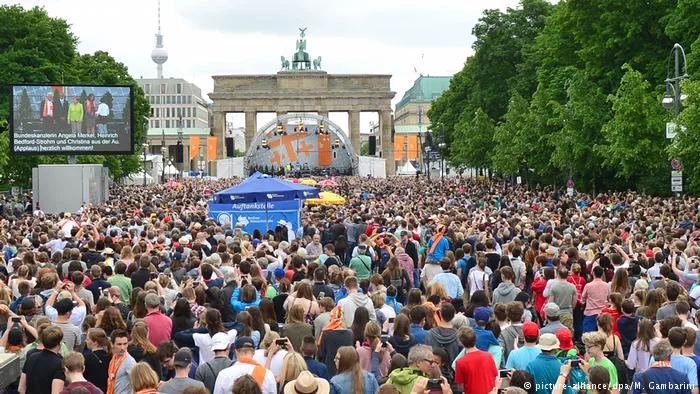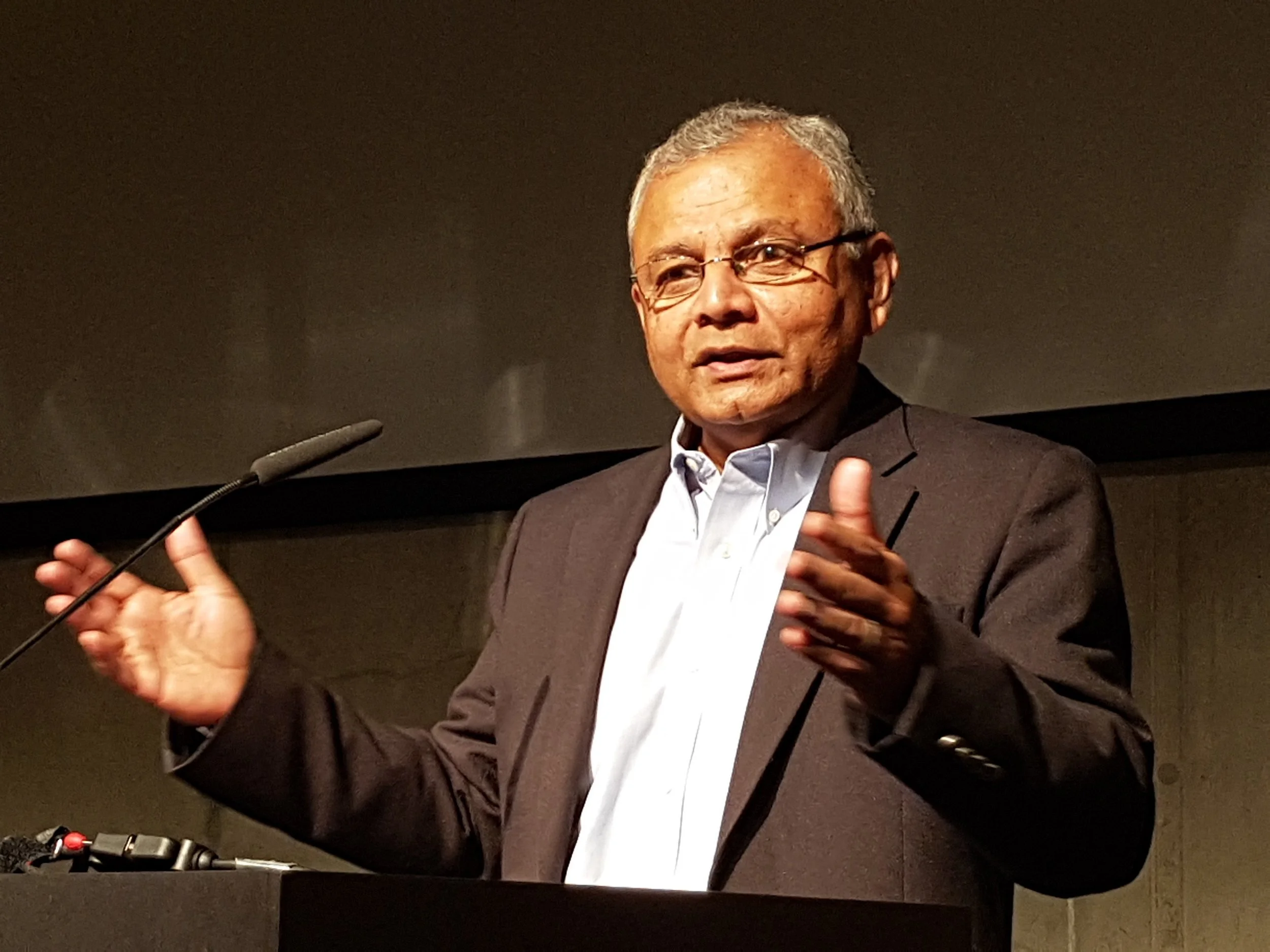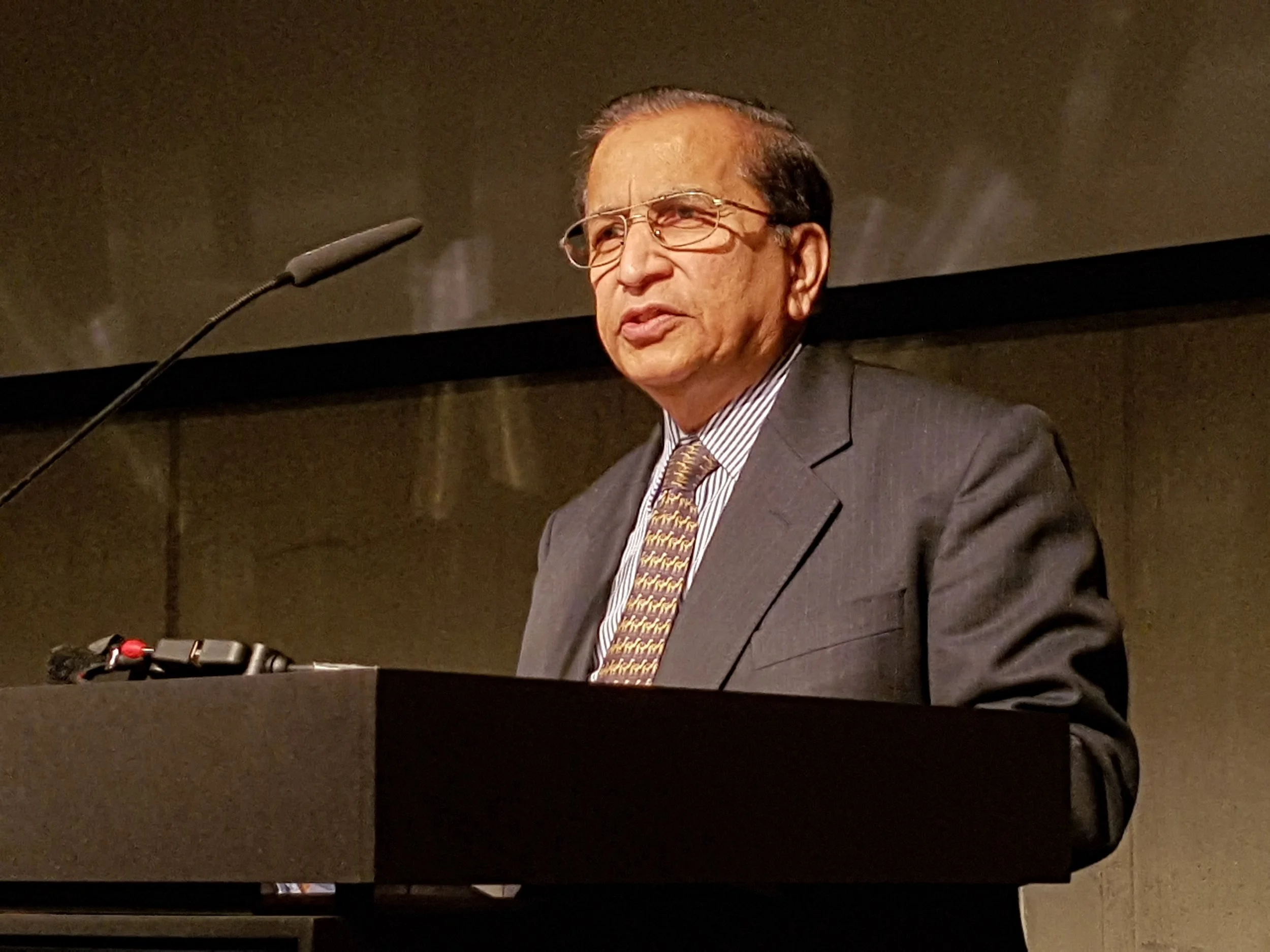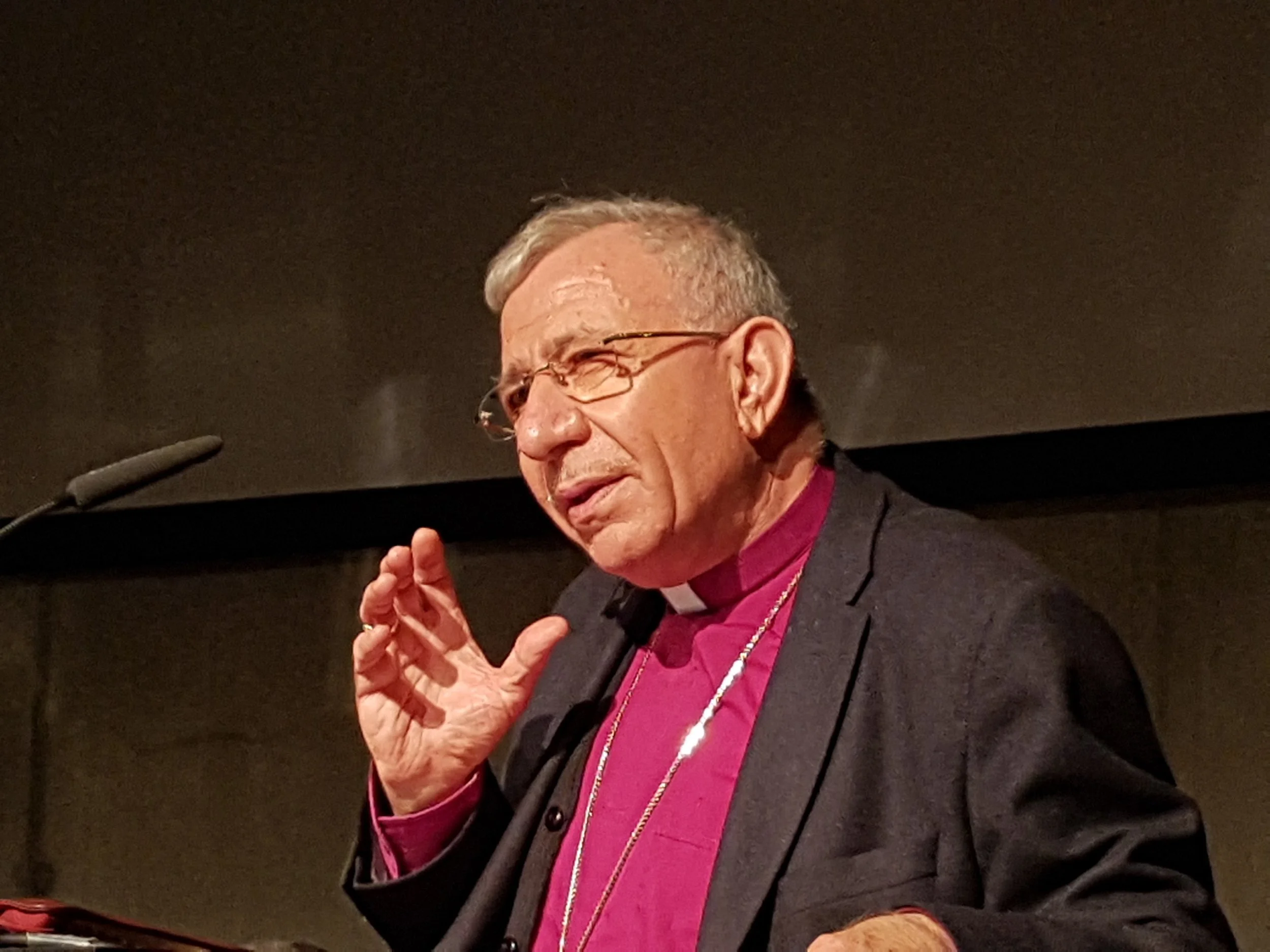by Vince Isner
Kirchentag 2017 Berlin: Merkel and Obama
I had not yet brushed the German dust from my suitcase when an old friend asked me about my recent trip to Berlin. OMNIA’s President Dr. Shanta Premawardhana and two colleagues had delivered a major address at Kirchentag (or “Church Congress”), a three-day gathering of protestants debating, praying, singing, and studying everything from the Bible to climate change. As this year marked the 500th anniversary of the dawn of Luther’s Protestant reformation, the crowds were massive - an estimated 140,000 protestants filled the streets, trains, and subways of Berlin. Even Germany’s Chancellor Angela Merkel took the stage with former President Barack Obama at Berlin’s historic Brandenburg gate to discuss matters ranging from climate change to the role of faith in public leadership.
Meanwhile, at a concurrent Kirchentag event in the main venue on the other side of town, something of a second reformation was taking place. OMNIA's three progressive theologians were, figuratively speaking, tacking a thesis to the door of the church of the establishment - one that might change the world, if we could embrace it. More on that in a moment.
I should point out that my friend, a psychology professor at a major U.S. university, didn’t merely ask “how it went”, but followed with a far more thoughtful question: “Did anyone address why we haven’t successfully implemented Protestantism after five centuries?”
Martin Luther burning Papal bulls / Getty Images
Some would question the premise, arguing that it had achieved its purpose. If its aim was to rid the church of its corruption around indulgences and restore it to a more faithful expression of its doctrinal mission, then there is a case to be made that the reformation did achieve its purpose, albeit crudely and violently, as, say, one might rid a patch of poison ivy by setting fire to everything in sight, including flowers, shade trees, bridges, homes, and cities.
But if its purpose had been to restore the Church to a more faithful expression of its core mission as exemplified in the life and words of Jesus, then my friend’s question holds. Why has the protestant movement, institutionally and theologically, failed to adequately demonstrate the spirit of Jesus’ teachings to love our neighbor in thought, word, and deed, even as Jesus himself remains, on paper at least, central to the Church’s identity? While it is true that churches have done much to address the needs of the poor, the sick, and the disenfranchised, it is often in spite of, not because of, their denomination's various theological tenants delivered from on high, which perpetuate structures of superiority and exclusivity, and which are often rooted in outworn interpretations of scripture and pretentious pronouncements far removed from the pain of our brothers and sisters living in life's shadows.
And that’s where the three progressive theologians come in and why, in fact, OMNIA went to Berlin. Just as the Acts of the Apostles tells of the early beginnings of the Christian church as its own religion (known as Jerusalem Council), OMNIA was in the belly of the beast, as it were, to propose that the world today is badly in need of a “second Jerusalem Council” in which the example and teachings of Jesus should take bold precedence over dusty theology, religious differences, race, lifestyle, or anything else, and must be rooted instead in a commitment to listening to, learning from, and living in deep solidarity with those living in life’s margins. In other words - doing what Jesus did.
OMNIA President
Rev. Dr. Shanta Premawardhana
And so in the very midst of 140,000 singing, praying, studying, and debating protestants, and during the very time in which President Obama and Chancellor Merkel were speaking to thousands gathered at the Brandenburg Gate, three of OMNIA’s leaders - “President Shanta Premawardhana, Lutheran Bishop of Jerusalam Munib Younan, and Sri Lankan theologian and author Dr. Wesley Ariarajah, made the case before a less massive but no less enthusiastic crowd for a new theology that would transcend not only denomination, but religion, embracing pluralism, respect for all, and the importance of love-centered, power-based action over rhetoric.
Dr. Wesley Ariarajah
The call was urgent to embrace love of neighbor - not merely as the latest theology but as the primary driver of one’s devotions and actions. They issued a challenge to recognize that “received theology” - that collective corpus of doctrines, creeds, and traditions that have alternately energized and sedated so many over the centuries - is itself contextual, not absolute, and that the test of any theology’s authority must be measured not by its elegance but by its relevance.
Bishop Munib Younan, Lutheran Bishop of Jordan and the holy Land
They pointed to the inadequacies of traditional theology to address economic inequality, gender inclusiveness, religious extremism, and basic human rights. They cited pioneers such as Soraya Deen, an American Muslim woman who is working to bring women into the mainstream of modern American Muslim life, both in worship and in leadership. They shared how OMNIA’s training in contextual theology in terror-torn Nigeria is helping both Muslim and Christian clergy to work together to forge a plan to blunt the recruiting efforts of Boko Haram by addressing the underlying issues of economic opportunity and educational opportunity. They laid out a cogent and moving argument for looking into life’s margins to learn “what the Lord requires” of us all.
Thus began a second reformation. It began with a call to respond to the need of our time, stepping out of the safety zone and asking the tough questions. Amidst the exchange of cards and ideas, a small band of leaders representing diverse countries committed to work to advance a hopeful theology for a new day. For those present in the room, it was clear that the days of top-down theological pronouncements were slowly dwindling and that eventually, inevitably, new voices would soon emerge - not from lofty towers or polished pulpits, but from the dusty villages of Nigeria, the border towns of Mexico, and the Palestinian refugee camps of Israel’s West Bank.
Reformations, like revolutions do not always begin in chaos or fanfare. Sometimes they are borne out of desperation or injustice, and like revolutions, they do not always go down well with the status quo. But they happen because they are necessary. They happen because the alternative is unacceptable, and when they do, fresh possibilities arise for each player to contribute to the collective good in the quest to create a more compassionate and just world.






